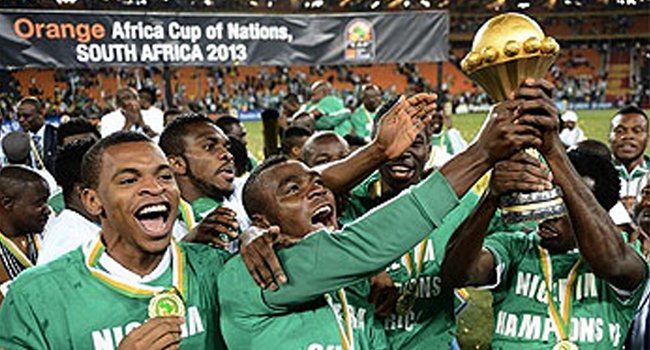
Nigeria on Wednesday lost out in the joint bid with Benin Republic to host the 2027 Africa Cup of Nations, with the joint bid by Kenya, Uganda and Tanzania clinching the hosting rights.
The Confederation of African Football (CAF) also announced that Morocco will stage the 2025 edition.
Morocco last hosted the AFCON in 1988 and was chosen in 2015 but asked for the tournament to be postponed because of the Ebola virus, although CAF later decided to strip the north African nation of the hosting rights.
While Morocco were hot favourites to host the 2025 edition of the premier African sport event, the shock last-minute withdrawal of Algeria from the 2027 race on Tuesday threw it wide open.
“This withdrawal can be explained by a new approach from the FAF (Algerian football federation) related to its strategy for developing football in Algeria,” it said.
The Kenya-Uganda-Tanzania bid then got the nod from the CAF executive committee, taking the biennial tournament back to east Africa for the first time since Ethiopia staged the 1976 finals.
“I am very proud of Morocco,” said CAF president Patrice Motsepe after naming the successful hosts in Cairo.
“Morocco’s competing countries (for 2025 tournament) — Algeria, Zambia and Nigeria-Benin — announced their withdrawal, even if these countries still made their presentation,” he said.
“The main reason is to support Morocco in its candidacy for the 2030 World Cup,” jointly with Spain and Portugal, explained Motsepe.
Morocco boast many world-class stadiums and have successfully hosted numerous African and world football tournaments.
But Kenya and Tanzania have only one international-standard venue each and Uganda none, which forced their national team to play 2023 Cup of Nations qualifiers at neutral venues.
“One of the key objectives is that the decision that was taken today (promotes) the development of infrastructure and stadiums (and) be a source of enthusiasm among young people,” said Motsepe.
‘Timing not ideal’
Taking the tournament to east Africa follows a statement this year by Motsepe that he did not want successive tournaments in the same region.
“We cannot assign the organisation of the CAN successively to the same region,” he said at a press conference before the African Nations Championship (CHAN) in Algeria last January.
However, several months later, CAF secretary general Veron Mosengo-Omba said regional rotation may not always be possible.
“Today, only five or six countries out of the 54 CAF members are able to apply to host the African Cup. Consequently, it will not be possible to make this alternation,” he said.
Ivory Coast will host the 2023 Cup of Nations, which has been put back to January and February 2024 due to the rainy season in west Africa.
“The timing is not ideal,” Motsepe has said, referring to the tournament falling in the middle of the European club season.
“But we could not risk the tournament being disrupted by inclement weather,” added the South African billionaire, who was appointed CAF president in 2021.
Stars who will have to leave their clubs for the African tournament include Mohamed Salah of Liverpool, Andre Onana of Manchester United and Victor Osimhen of Napoli.
The Cup of Nations has grown from a three-team tournament in Sudan in 1957 to a 24-team event since 2019, and attracts a worldwide TV audience.
Egypt have been the most successful country with seven titles, including three in a row from 2006. Cameroon triumphed five times and Ghana are four-time champions.
The line-up for the next edition in five Ivorian cities includes the top 16 African countries in the latest FIFA rankings, led by 2022 World Cup semi-finalists Morocco.




